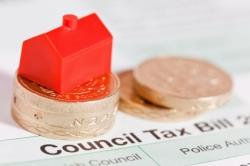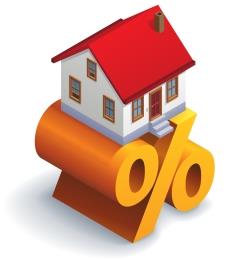Become a first time buyer - Chapter 2
Category News
The hidden costs of owning a home
Before committing yourself to owning a home, you need to familiarise yourself with the hidden costs of home ownership such as the municipal rates, levies and home owners insurance. Learn how interest rates work and how they would affect you should an increase occur.
Additional costs to keep in mind
Once you have established the estimated amount paid monthly towards bond repayments, you should consider other additional costs for a home owner. These expenses are often neglected in the planning when purchasing a property and can cause financial pressure down the line if not considered. Although they are not directly related to your home loan repayments, they are monthly expenses that must be taken into account when doing your budget.
Utility Fees
These fees are charged by your local municipality for the use of water and electricity.
This payment is based on your consumption throughout the month and can be monitored by you.
The cost of electricity can differ and depending on the system available in the area, you can use a prepaid system or be billed monthly for the amount of electricity you use.
Municipal prepaid meters can be more budget friendly as you are able to pay upfront for electricity and therefore monitor your spending more carefully.
Rates, taxes and levies

Rates, taxes and levies are fees paid to the authority that services your property such as a body corporate or municipality.
These fees are dependent on your property type and are paid to the authority which services your property such as a body corporate or municipality.
If you are buying a freestanding property you will be charged monthly for municipal rates and taxes.
This charge covers the services provided by your local municipality such as sewerage facilities, roads maintenance, street light maintenance and refuse collection.
If you are buying a sectional title property such as a property in a complex or a flat, you will be charged levies. These are the costs involved in running the complex, and include municipal rates and taxes, limited building insurance coverage, repairs and maintenance.
Homeowners insurance
When you apply for a home loan you will find that homeowners insurance is mandatory as it covers your property against loss and damage.

Homeowners insurance is mandatory to qualify for a bond as it covers your home in the event of damages or loss.
The monthly premium is dependent on the loan amount granted for your property.
Most financial institutions offer this coverage, so it is advisable that you shop around for an offer that suits your needs and your pocket best.
It is important to note that homeowners insurance, otherwise known as building insurance, does not cover the contents of your home. Therefore you will need to apply for home contents insurance should you wish to insure your personal possessions.
Monthly home loan instalments
Your monthly instalments are made up of the amount needed to repay the loan amount and a portion of the interest on that loan amount.

A bond instalment usually includes a portion of the the capital loan amount, added interest and admin fees.
You start paying off your monthly instalments from the moment the property is registered in your name and this will continue for the entire duration of the agreed loan period (10, 15, 20 or 30 years).
How the interest rate affects you
To know how the interest rate affects you, you have to first understand that "interest" is essentially a lending "fee" that the Bank charges you for borrowing "their" money.
This fee is added to the initial loan amount known as your original capital balance, and together they make up your total loan amount which is known as your actual contract balance.

How will the interest rate affect your home loan?
Your interest rate will be based on the Prime Interest Rate.
This is a rate that is considered a "recommended benchmark" for interest, and is expressed as a percentage.
When you borrow money from the Bank, the interest rate is usually specified in terms of the Prime Interest Rate. Your interest rate can be higher or lower than the standard Prime Interest Rate.
The interest rate that you are offered by the Bank can vary depending on a number of factors including your credit profile, the value of the loan and the loan period amongst others.
Your interest (%) is calculated on the balance of the loan at the end of every month. Calculating these amounts can be tricky, so it is advisable to make use of a bond calculator for assistance.
Interest rate tip: The shorter the term of the home loan, the less the interest you will pay. Always take this into account when choosing a contract term.
Article and content sourced from Property24.com
Author: Kobus Erasmus


